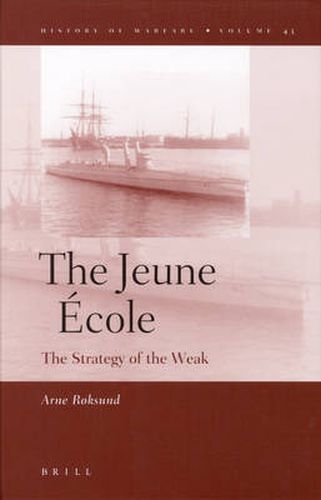Readings Newsletter
Become a Readings Member to make your shopping experience even easier.
Sign in or sign up for free!
You’re not far away from qualifying for FREE standard shipping within Australia
You’ve qualified for FREE standard shipping within Australia
The cart is loading…






Anglo-American theoreticians have to a large extent dominated the formulation and study of modern naval strategy in Western countries. This Anglo-American dominance has resulted in a focus on how the superior power should exploit its superiority in order to realize its strategic objectives. The present study differs from other books on naval strategy by analysing a military strategy for the inferior power instead. Along with Tirpitz’s risk theory , The Jeune Ecole is the most significant maritime strategy dealing with the dilemmas facing the weaker navy. This French body of naval thought is distinguished from other strategies of the weak by its elaborate prescriptions for the offensive use of naval forces. This book represents an unprecedented study of The Jeune Ecole based on hitherto unexploited and unpublished primary sources from the Service Historique de la Marine.
$9.00 standard shipping within Australia
FREE standard shipping within Australia for orders over $100.00
Express & International shipping calculated at checkout
Stock availability can be subject to change without notice. We recommend calling the shop or contacting our online team to check availability of low stock items. Please see our Shopping Online page for more details.
Anglo-American theoreticians have to a large extent dominated the formulation and study of modern naval strategy in Western countries. This Anglo-American dominance has resulted in a focus on how the superior power should exploit its superiority in order to realize its strategic objectives. The present study differs from other books on naval strategy by analysing a military strategy for the inferior power instead. Along with Tirpitz’s risk theory , The Jeune Ecole is the most significant maritime strategy dealing with the dilemmas facing the weaker navy. This French body of naval thought is distinguished from other strategies of the weak by its elaborate prescriptions for the offensive use of naval forces. This book represents an unprecedented study of The Jeune Ecole based on hitherto unexploited and unpublished primary sources from the Service Historique de la Marine.